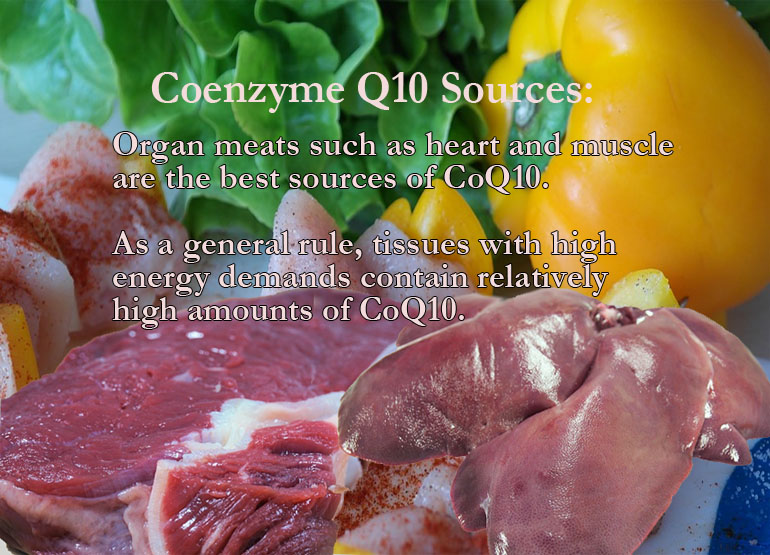Health Pages
Sources of Coenzyme Q10
Sources of Coenzyme Q10
Besides endogenous synthesis, CoQ10 is also supplied to the organism by various foods. Animal products such as beef, pork and chicken are relatively good sources of CoQ10. Organ meats such as heart and muscle are the best sources. As a general rule, tissues with high energy demands contain relatively high amounts of CoQ10. Dairy products are much poorer sources of CoQ10 compared to animal tissues, while a modest amount can be found in butter (7 mg/kg). Fish and shellfish represent an important dietary source of CoQ10 (estimated at 9%-22% in different countries).
Peanuts, sesame seeds and pistachio are the richest CoQ10 representatives within nuts and seeds with levels over 20 mg/kg. Many other nuts are also good sources of this compound.
Among foods of plant origin, parsley and perilla are the richest CoQ10 sources, broccoli, rape, cauliflower, and spinach contain modest amounts of CoQ10.
Unrefined vegetable oils such as soybean oil, rapeseed oil, olive oil and palm oil are also good sources of CoQ10. Some oils, particularly corn oil, are much richer in CoQ9 than in CoQ10.
CoQ compounds are widely distributed in nature, from microorganisms to plants to animals including humans. In humans and several other species, the side chain is comprised of 10 isoprene units and hence the name CoQ10. Find out more about coenzyme...
Did You Know?
- Use of statins reduce CoQ10 levels.
- Aging, in individuals older than 20 years, reduces CoQ10 levels in internal organs.
- UV exposure reduces CoQ10 levels in the skin.
"CoQ10 is a natural nutrient essential to the life and health of every living cell. Without it, our bodies are unable to fight back against infections and disease. Unfortunately, many of us, especially as we age, lack sufficient CoQ10, putting us at risk of serious illness."
~ From the book "The Miracle Nutrient: Coenzyme Q10" by Emile G. Bliznakov and Gerald L. Hunt



